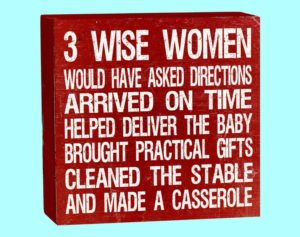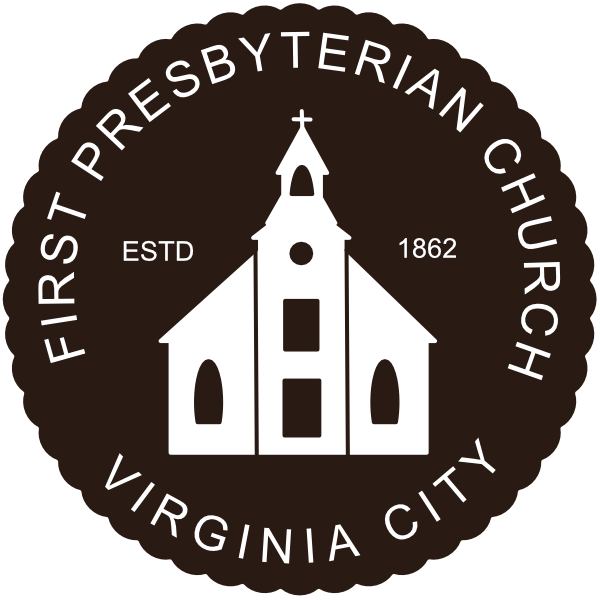
Our gospel lesson this morning recounted the familiar visit of the wise men, a key set of figures in our holiday nativity scenes. They come bringing rather, should we say, unique baby gifts. What would an infant need with a gift of gold? Or ointments, such as frankincense or myrrh, for that matter? What were these three wise guys thinking?

But gold, frankincense, and myrrh, it was. Most theologians point to symbolism of the oils as foreshadowing of the burial of Jesus, even at his birth. Frankincense and myrrh were also used for other sacred purposes, the first burned in the temple as an offering and the second as a healing balm.
But what did the gold represent? It holds no medicinal qualities, nor does it have a fragrance or quell pain. While it symbolizes the trappings of royalty and kingship (as most theologians note), it essentially signifies money, currency, and wealth. It makes me wonder why Matthew, the only gospel author who mentions the wise men, was so specific in mentioning these gifts. A couple thoughts…
One would have to wonder if Mary and Joseph saw the gift of gold, cash as it were, and let out a sigh of relief. Being of the peasant class, they might have been more interested in its monetary value than its theological prediction. Perhaps they thought they could tuck it away, like a savings bond or the seeds of a college fund; a small bit of security to be used when times got really tough. While they may have appreciated the valuable, but less practical gifts of frankincense and myrrh, and maybe not so sure how useful they were at the moment, they knew that the gold could come in handy in real, material, bread-on-the-table terms. Not to mention that Matthew places this story just before the account of the escape to Egypt, in which they would need resources for the journey.
Author Jill Duffield makes the suggestion in her book, Advent in Plain Sight, that the magi’s gift of gold can remind us that the Holy Family was a real family; not unlike the real families that we know, attempting to raise children working, imparting values, cooking meals, shaping character and getting tired. In all the angel appearances and voices from heaven and strange star sightings, sometimes we neglect to emphasize the miracle of incarnation, the truth that the Son of God becomes enfleshed as a real baby reared by real parents; parents who must figure out daily living in an often threatening, scary, uncertain world. Just like parents today. Just like us. The gift of God reminds us of these realities and the truth that Jesus was fully human, as well as fully divine.
Thus, one of the messages of this of the magi’s most practical gifts, that of money, is that it tethers Jesus and his family to the messiness of having to make a living in the world. It is a reminder to us that Jesus, Mary and Joseph likely did struggle with the daily frustrations and pains that everyday people, all people, confront. People like you and me. We can see the gift of gold that ties the secular, everyday needs of human life to the sacred incarnation of our saving God. That, in the Word made flesh, God knows – and understands -our human concerns, joys and troubles.
And second, let’s consider the magi themselves, the bearers of these gifts. The word “magi” in the original language refers to Zoroastrian priests, or astrologers, from the area of Persia. How many there were, is only speculation; the customary number of three only indicates the number of gifts, not the quantity of the bearers. In fact, there has long been speculation and stories about other wisemen, including the familiar 1895 tale by Henry Van Dyke. Regardless of the details, the importance of their arrival and gifts they offered bring great meaning to the Messianic story.
The magi or astrologers were in any case, gentiles, and they were included in the birth of the Messiah. Matthew notes, that upon their arrival, they bowed down to the infant, offering the respect shown to his divinity, as did the gift of gold. But by including the appearance of these foreigners, called pagans by some, Matthew foreshadows the coming of the Messiah for ALL people, not just for the Jewish audience to whom he writes. They are the reminder that Jesus welcomes all peoples from all places and cannot be limited to the Jews or any other singular people. The magi can also remind us of the divine promises given throughout our scriptures. From the beginning in Genesis 12, where God promises Abraham that through him “all the families of the earth will be blessed” to the final words in Revelation 7, where John has a vision of heaven with people from “every nation, from all the tribes and people and languages, standing before the throne and before the Lamb”. Even Matthew’s contemporary John declares in the first chapter of the book bearing his name:
But to all who received him, who believed in his name, he gave power to become children of God, 13 who were born, not of blood or of the will of the flesh or of the will of man, but of God.
The wise men remind us of the good news of salvation for all people.
One pastor made an interesting point about the significance of these wise men. He says:
I read a story about one person who keeps the Wise Men figurines from her nativity out year-round. She says: “it’s a visual reminder to me. It reminds me that the truth of the ages from this part of the “Christmas” story is, and always has been, that wise men and wise women, wise boys and wise girls, still seek Jesus. Not just at Christmas time, but all through the year.
Even if we don’t keep the figures of the magi out year-round, let us likewise be reminded to seek our Lord Jesus throughout the year. Let us pray:
Lord Christ, we bring the gift of ourselves and offer it totally to you. You took on our humanity, in all its messiness and pain, its finitude and struggle. As a result, nothing and no one is off limits to your saving love. When we want to wall of places in our lives or hold back anything from your transforming grace, remind us that you came to save sinners and will reject any aspect of us, not even those we most fear you or others will reject. We rejoice that whatever we offer you in faith, you take, bless, break and use to multiply mercy for all.
Happy New Year. Amen.
